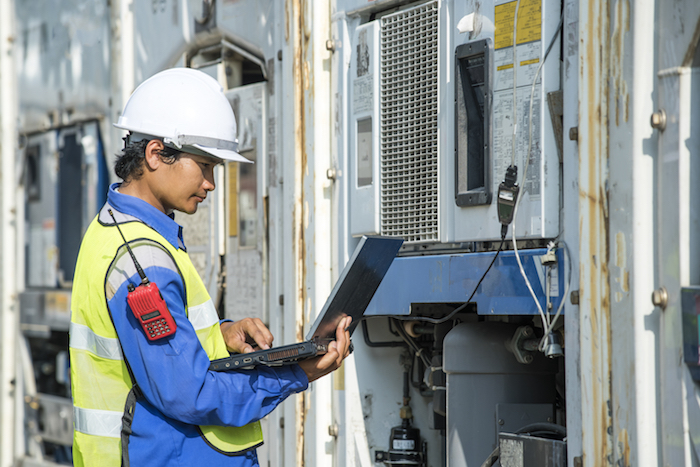Lack of transparency challenges cold chain, expert says
Lara L. Sowinski | Feb 25, 2017 9:00AM ESTPrint


Following his 30-year career with Maersk Line, including 10 years as the company’s global head of reefer business, Thomas Eskesen established his own advisory firm in 2015. Today, Eskesen Advisory works with clients on a number of issues and strategies related to reefer shipping. Cool Cargoes checked in with him recently to get his views on the current market.
CC: The impact of carrier consolidation and its impact on reefer cargoes is top of mind for many industry executives. What’s your take?
Eskesen: First, I think we need to look at the core fundamentals of what shippers of refrigerated cargoes require: a quality service provider; reliable and consistent services; and ongoing improvements and innovations.
The financial distress of the shipping lines, which is mainly driven by the overcapacity in the Asia dry export trades, means carriers in general struggle to deliver on these parameters.
At the same time, the rapid pace of consolidation we are seeing is long overdue, in my opinion. I think we will eventually look back at developments that occurred in 2016 as a complete industry game changer, many of which we once deemed unthinkable, i.e., the Cosco and China Shipping merger; CMA CGM acquiring APL; the three Japanese carriers NYK, MOL and “K” Line set to merge in 2018; Hapag-Lloyd acquiring UASC; and last but not least, Maersk acquiring Hamburg Sud.
CC: Is there an upside for reefer shippers?
Eskesen: The larger scale will mean more financial stability, which will put the lines in a better position to deliver the essential basic quality and consistency. They will take further costs out and improve efficiencies.
CC: Will we see a hike in prices?
Eskesen: Over time, yes, I believe so, and it may be controversial, but it is in the shippers’ best interest to have healthy service providers who can reinvest in the business, plus reignite innovation. The shipping business is extremely old fashioned, and one needs to invest in digitalization to provide better service to clients.
Another result of consolidation is that it will lead to bigger and more serious, determined players. Instead of the current behavior, which is more focused on filling slots and growing market share, we’ll begin to see more long-term thinking and an understanding that profit and stability is better than solely building market share and generating price wars.
CC: What is the biggest pain point with refrigerated shipping today?
Eskesen: In February, I attended the world’s largest fruit fair in Berlin. It was clear that the largest pain point yet to resolve is the lack of data and transparency in the process of managing the end-to-end cold chain. This lack of transparency leads to food waste, lack of trust, and eventually added cost to the end-consumer. I welcome the initiative by Maersk Line to be fully transparent with its reefer data, i.e., GPS, power, temperature monitoring, etc. This will set an entirely new industry standard and force other shipping lines that are serious about the reefer business to follow.
CC: Are there other key trends you think shippers should pay attention to?
Eskesen: Yes, I think many tend to overlook the fact that the world’s refrigerated business is a super-attractive growth market with a strong correlation to population growth and improved wealth in places such as China and India. Specifically, we saw 5.8 percent trade growth in 2016, which is very healthy, so shippers continue to see growth opportunities in new markets, produce varieties, etc. The flip side is that container lines did not have sufficient cash to invest in their reefer container fleets in 2016, so right now we are seeing pretty significant challenges for the carriers to supply containers. That means shippers need to pay extra close attention to who they contract their business with, and ensure guarantees are in place. They may have to pay a premium to get priority treatment, but, then again, the fresh fruit is no good if left behind.
No comments:
Post a Comment